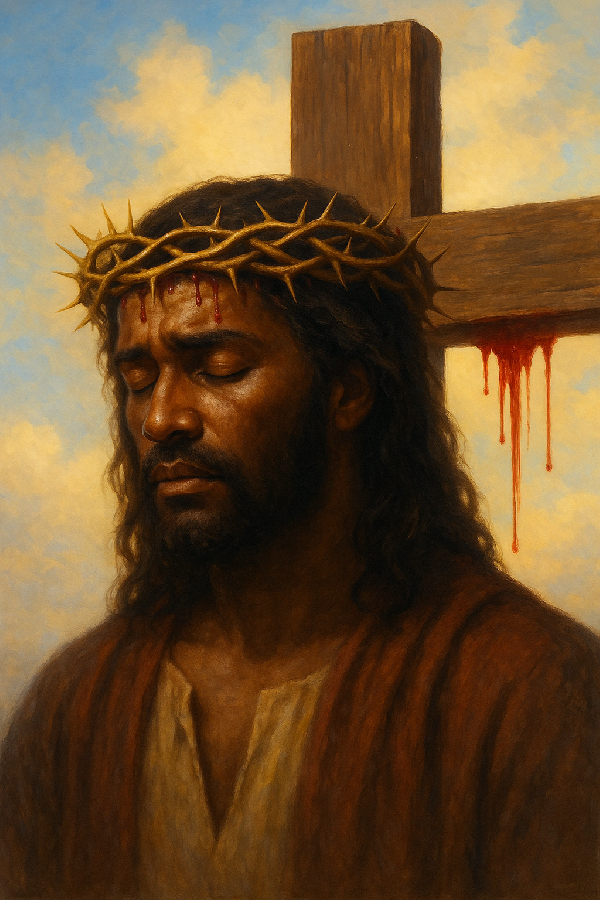Across the globe, from the bustling streets of Accra to the chapels of Canterbury, faith is navigating a storm. Moral decay, spiritual fatigue, and a performance-based gospel have compromised the soul of the Church. In Ghana, the heartbeat of Christianity is vibrant but threatened by theatrics, consumerism, and silent backsliding.
Easter comes not as a routine event, but as a sacred pause—a moment to reflect, return, and reset. Jesus declared, “I am the way, the truth, and the life. No one comes to the Father except through Me” (John 14:6, NKJV). In a world drowning in noise, Christ’s life, ministry, betrayal, and death emerge as the roadmap for restoring the soul of the Church.
This article is a journalistic pilgrimage through the essence of our faith, calling on believers to rise from the ashes of religion into the fire of righteousness.
“When righteousness is lost in the temple, the world echoes with confusion. But when the Church returns to Christ, society returns to sanity.” – Bismarck Kwesi Davis I. Humanity Draped in Divinity Born in obscurity, raised in simplicity, and crowned in sacrifice, Christ’s life was a lesson in quiet power. He was not born into royalty, but His presence redefined kingship. He lived among the poor, walked dusty roads, and honored the unseen—from lepers to tax collectors.
“Christ made Himself of no reputation, taking the form of a bondservant, and coming in the likeness of men” (Philippians 2:7, NKJV). In a Ghanaian context, His life mirrors the strength of the market woman, the perseverance of the trotro driver, and the humility of the village teacher. His message is timeless: God is not impressed by our platforms; He is moved by our posture.
II. Disruptive Grace, Healing Power With dusty feet and divine vision, Jesus healed the sick, embraced the unclean, and rebuked the proud. His ministry was not about building fan clubs; it was about building kingdom character.
“The Spirit of the Lord is upon Me… To preach the gospel to the poor… To set at liberty those who are oppressed” (Luke 4:18, NKJV). To the modern African church, His life rebukes shallow spectacles. His legacy invites us back to the altar of truth, justice, and love. In a global culture addicted to performance, Christ whispers: Feed my sheep, not your ego.
III. Africa’s Oral Genius in Divine Metaphors Christ taught in parables, painting eternity with the palette of daily life. From lost coins to rebellious sons, His words reached farmers, fishermen, and scholars alike.
“A certain Samaritan, as he journeyed, came where he was. And when he saw him, he had compassion” (Luke 10:33, NKJV). In Ghana, we understand proverbs and storytelling. The parables are our link to His divine brilliance. The story of the Good Samaritan challenges tribal divisions. The Rich Fool confronts our growing materialism. The Sower demands that we evaluate the soil of our hearts.
IV. A Mirror for the Modern Church Judas was not a stranger. He was on the ministry payroll. His kiss became a dagger cloaked in devotion.
“Friend, why have you come?” (Matthew 26:50, NKJV). In today’s Church, betrayal wears many suits—moral scandals, spiritual abuse, greed, and silence in the face of injustice. But Christ’s response remains counter-cultural: He offered His back instead of revenge. This is the call to the Church: To love when wounded, to serve when stabbed, and to finish the race, even when betrayed.
V. Reclaiming the Power of the Cross Easter is not pageantry; it is prophetic urgency. On the Cross, Jesus did not just bleed; He redefined power.
“God forbid that I should boast except in the cross of our Lord Jesus Christ…” (Galatians 6:14, NKJV). Christ’s death teaches that true leadership is sacrificial, not superficial. In Ghana, where Easter is celebrated with conventions and concerts, let us remember: Calvary was not a concert; it was a covenant.
VI. Restoring the Soul of the Church “Him we preach, warning every man… that we may present every man perfect in Christ Jesus” (Colossians 1:28, NKJV). Return to Christ-Centered Teaching: Preach the unfiltered gospel.
Reinstate Holiness as Identity: Holiness must return to every sphere.
Revive Authentic Prayer and Intercession: Rebuild personal altars.
Rebuild Integrity in Leadership: Lead with character, not charisma.
Reach the Marginalized and Lost: Focus on the unreached and hurting.
Reignite the Role of the Holy Spirit: Teach empowerment, not entertainment.
Reclaim Cultural Relevance: Address national issues boldly and biblically.
VII. Championing the Resetting Ghana Agenda “Learn to do good; Seek justice… Defend the fatherless, Plead for the widow” (Isaiah 1:17, NKJV). The Church must:
Challenge corruption with truth. Support youth with mentorship and opportunities. Be a voice of justice and righteousness.
Serve as a moral compass for the nation.
The Resetting Ghana Agenda is not political; it is spiritual and civic. The Church is its conscience.
VIII. From Accra to the Nations “You have left your first love… Repent and do the first works” (Revelation 2:4-5, NKJV). Across continents, churches are gasping for air amidst compromise. Yet, Christ remains the oxygen. The call is for the global Church to reset to the Cross.
Returning to the Sacred Place “Present your bodies a living sacrifice… which is your reasonable service” (Romans 12:1, NKJV). In this Easter season:
Let the bells ring again—not for ceremony, but for consecration. Let the Church lead again—not in show, but in spirit.
Let Ghana rise again—not in hype, but in holiness.


